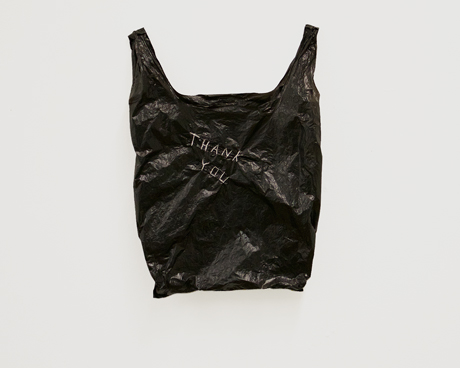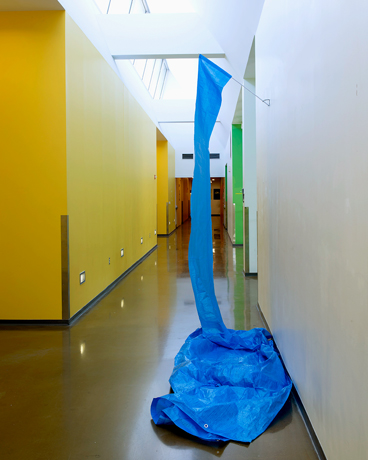Thesis Exhibition: March 22-25, 2017
Opening Reception : March 24, 6-8pm


Artist Statement
I want to make things that are useful, by which I mean produce useful relationships. I’m inspired by something Nicolas Bourriaud wrote: “The artistic question is no longer: “what can we make that is new?” but “how can we make do with what we have?””[1] In other words, how can I make use of the abundance of increasingly sophisticated cultural materials to build meaning?
A related question I’ve been thinking about a lot is what it means to make. If I purchase a product, a material, then take it out of its packaging—producing garbage—have I made something? I’m interested in how this reconsideration of making can co-exist with the classical hylomorphic model of making, in which the artisan uses the intrinsic forms of the material as information that guides the final outcome of the formed object.
Though most of the materials I work with appear divorced from this information due to tactile slickness (in the case of plastic or other packaging), or the appearance of an ahistorical inevitability (in the case of advertisements, or heavily reproduced signs and symbols), I contend that it is possible to retrieve specificity and context through artistic labor. I attempt to do this by re-framing the hylomorphic model as an investigation into the actual or purported uses and effects of these materials, including their affective actions. I then attempt to manipulate these materials to create meanings that often serve different social and political ends. I think Fantasy is a political tool and as such a means of resistance.
Finally, I want to note that I rarely think of my work—whether it’s conceptual or concretized in form—as finished. I often cannibalize earlier works to produce new ones. This is because I think that everything I produce exists on a continuum; to place an artificial finality on any piece would be a disservice, despite (but also because of) the challenges that this creates within a market context.
My practice is a set of convictions that guide me in my making. These are:
My ideas develop slowly and have a life of their own which I try to uncover.
Use and value must be related, and useful things are better than useless things.
Making isn’t rebellious if it can still be collected.
Originality is beside the point.
[1] POSTPRODUCTION, CULTURE AS SCREENPLAY: HOW ART REPROGRAMS THE WORLD (New York: Lukas and Sternberg, 2002) 8.